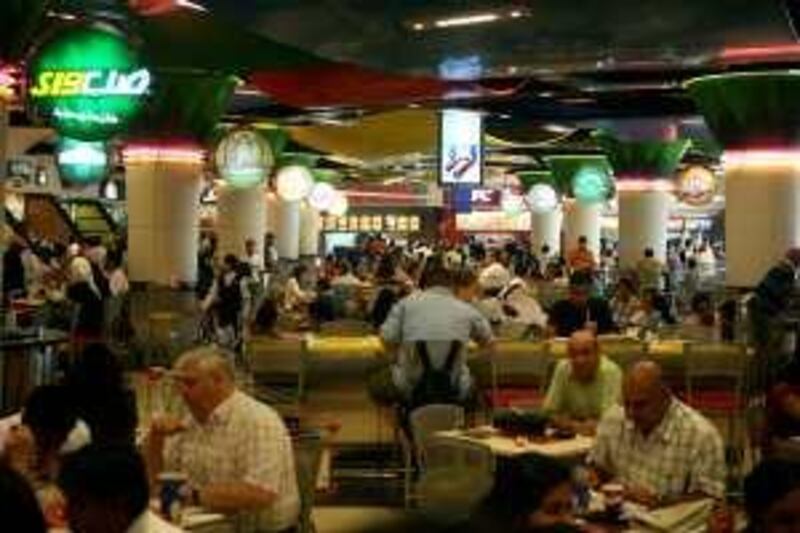People in the UAE are eating too much of the wrong foods and straining the nation's food supply, according to food experts and a recently released UN report. The Food and Agriculture Organisation (FAO) estimated that the average daily caloric intake per person in the UAE in 2005 was just over 3,000 calories - almost a third above the recommended amount for a healthy person.
That presents a major health issue for a country already struggling with obesity rates of 25 per cent for men and almost 40 per cent for women. Twenty per cent of UAE residents have diabetes, a condition linked to obesity. Overconsumption is "very typical; I see it in the hospital", said Dalia Shukri, a clinical dietician at the American Hospital in Dubai. "It is an increasing trend." Hala Abu Taha, a Dubai-based nutritionist and dietician, agreed, and suggested that current caloric intake was even worse now than when the study was conducted in 2005.
"Some extremely obese patients will recall consuming 8,000 calories," she said, while others with more reasonable weights often consumed more than 3,200 calories a day. Actual consumption is probably higher because most people underestimate how much they eat, she added. Compounding the problem is the fact that 10 per cent of the food supply in the Gulf region is imported, meaning more dependence on foreign resources, experts said.
The State of Food Insecurity in the World 2009, a joint publication by the FAO, the Economic and Social Development department of the UN and the World Food Programme (WFP), examined food production trends and the effects of the global financial crisis on consumption around the world. It said one trigger behind increasingly unhealthy dietary habits in the developing world was the global financial crisis.
Cash-strapped individuals, faced with declining economic prospects, reduce spending on food, health care and education. The result is reduced food diversity, and "food expenditures also shift towards calorie-rich, energy-dense foods and away from more expensive protein- and nutrient-rich foods", the report said. The same is true of the UAE, where the FAO estimated carbohydrates made up 63 per cent of the daily diet in 2005. Ideally, that number would be 50 per cent.
People are "not very careful with what they eat", said Ms Shukri, who said there was an increasing tendency towards "dense caloric food", such as junk food, for those short on time and money. Bram Sunartyo, 25, an Indonesian construction worker having lunch at the KFC at Abu Dhabi Mall, said he liked fast food because it was "easy, quick and cheap". "I'm thin and I work too hard. I eat fast food three times a week, at least. It's because of my stomach - it fills me up and it's enough for me," he said.
His friend, Berman Gurning, 35, also a construction worker, said: "It's the fastest way to get the stomach filled when you're really hungry." The high levels of saturated fats in restaurant foods needs to be regulated, said Ms Abu Taha. Ms Shukri added that social norms add to the tendency to overconsume. "People here tend to overeat; they have huge meals. They're social eaters," she said. Ms Abu Taha said the high caloric intake was a major contributing factor to obesity in the country, and was amplified by a consumerist culture and a general "lack of physical activity".
"Physical activity is key - you need to burn off the food you eat. You can have a good 2,400 to 2,600 calories of food and exercise to burn it off," said Ms Shukri, who recommended that individuals exercise three times a week for at least 30 minutes. Rising overconsumption could also dramatically increase health care expenditures related to obesity, particularly since insurance policies often do not explicitly cover weight-management measures and only choose to treat underlying medical conditions that may cause obesity.
Nutritionists have recommended that restaurants display calorie counts on their menus as well as colour-coded labels warning customers of unhealthy food. "They shouldn't get too close to the prices, but make people aware, and telling them to not have this or not have that, and to tell them what's the healthier option," Ms Shukri said. However, there are questions over whether such an approach might work. A law introduced in New York City in 2008 requiring restaurants to display calorie counts on menus did not result in a measurable decline in the consumption of high-calorie food, according to a joint report by New York University and Yale University published in a health policy journal.
The FOA report's findings indicate that such measures might actually make carbohydrate-rich food items more popular, as they offer more calories per dirham. The report on consumption also found that there were more than one billion hungry people in the world in 2009, more than ever recorded, as a result of rising unemployment, high domestic food prices and lower incomes. It recommended increased agricultural spending to fight the rise in world hunger.
@Email:newsdesk@thenational.ae * With additional reporting by Zahra Hankir






